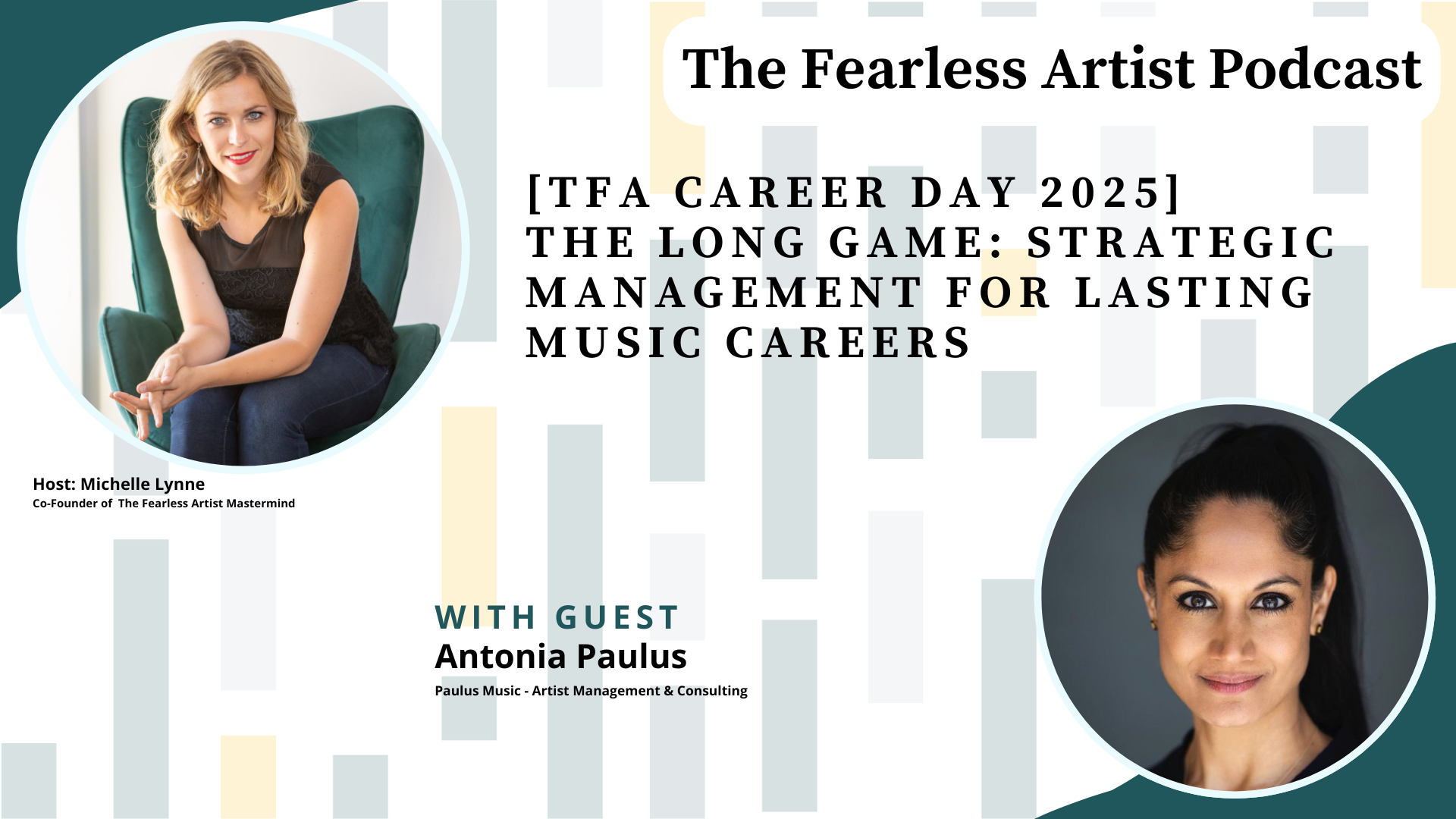[TFA Career Day 2025] The Long Game: Strategic Management for Lasting Music Careers
Episode 58

Subscribe to The Fearless Artist Podcast
Intro/Outro music by Michelle Lynne • Episode produced by phMediaStudio, LLC

Intro/Outro music by Michelle Lynne • Episode produced by phMediaStudio, LLC